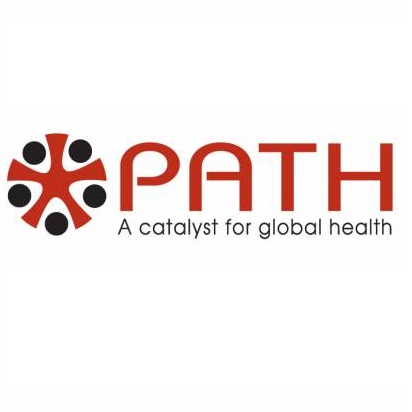Job Description
The Ministry of Health, Zanzibar began a reform process in the early 1990’s, developing the Health Sector Reform Strategic Plan I 2002/03 - 2006/7 and Zanzibar Health Sector Strategic Plan II 2006/7 - 2010/11. The reform’s aim has been to achieve decentralization of services to the district level via district health management teams as well as ensure “the availability of the equitable high quality of health care services to all Zanzibari which focuses on the burden of disease and according to an Essential Health Care Package.”
During the development of the Zanzibar Health Sector Strategic Plan II 2013/14 - 2018/19 (HSSP III) a multi-stakeholder consultative process reviewed the challenges and success of the HSSP II and recommended the following priorities for HSSP III.
- Effective management of Human Resource for health
- Enhancement of decentralization of health services management and planning
- Increase coverage and access to quality care services at all levels
- Effective management and procurement of medicament, supplies and health equipment
- Increase access to health services to special populations and groups
- Quality assurance
- Enhancement of Public-private partnership
- Strengthening of Health Boards and Councils
- Strengthening Health financing sustainability mechanism:
- Enhancement of the monitoring and evaluation system
- Health Promotion and Disease Prevention
- Increase community ownership
- Promote utilization of e-health
A mid-term review of the HSSP III was conducted in 2017 which found progress in several areas, including improvement in life expectancy and infant and under-5 mortality, malaria is in the pre-elimination phase, and HIV prevalence is less than 1%, while other areas are experiencing challenges, e.g. neonatal and institutional maternal mortality are still high and HIV testing declined in pregnant women due to stockouts of reagents and a shortage of health providers, particularly in 2015.
The health system in Zanzibar is divided into three levels: tertiary, secondary and primary. The tertiary level is made up of three public hospitals (Mnazi Mmoja Hospital, Mwembeladu Maternity Home and Kidongo Chekundu Psychiatric hospital) while at the secondary level there is one regional hospital (Abdalla Mzee Hospital), and six district hospitals. At the primary level there are 172 health units. The primary health care units are also divided depending on the services being provided and the catchment population; there are 35 Primary Health Care Centers (PHCC), 27 high populated Primary Health Care Units (PHCUs), 14 medium-populated PHCU and 96 low-populated PHCU. The Ministry of Health has about 53 offices, units and vertical programs which are coordinating various health interventions.
Zanzibar has been using the DHIS2 platform as a national Health Management Information System (HMIS) since 2005. The system has improved data collection, management, and availability at different levels of the health system. DHIS2 needs to be improved through harmonization of data elements/indicators, data quality controls, implementation of additional data analytics and dashboards to facilitate data use as well as DHIS2 integration/interoperability with other systems.
Scope of work
The consultant will partner with PMI team including representatives from MOHCDGEC and PATH to perform the following activities.
- Customization of the new DHIS2 version to include missing data elements.
- Reimplement data migration from old into the new version
- Develop the capacity of MOH ICT team on DHSI2 data migration
- Decommission the use of legacy DHIS2 version
- Review and analyses DHSI2 software to identify the cause of data inconsistence
- Review feasibility of and implement integration of DHIS2 with existing iHRHIS and electronic logistics management system.
- Concretize customs reporting and dashboards needs with HMIS team and health program
- Develop detailed documentation of existing DHIS2 gaps as outlined by HMIS team for enhancement
- Develop custom interactive dashboards apps for data quality and performance for health facility level.
- Customize DHSI2 software to address data inconsistence issue
- Configuration of the needed customs routine reports.
- Develop capacity of ICT team to implement customization reports for future needs
- Develop capacity of ICT team on DHIS2 issues diagnosis and customization.
- Develop capacity of MOH team on development of DHIS2 interactive applications for dashboards and custom reports.
Required Experience
Deliverables
- Report of the DHIS2 gaps that outlines existing functionality gaps, data inconsistency, migration gaps and a plan to cover the gaps
- Capacity building plan of DHIS2 to MOHZ
- Analysis report that outlines dashboards requirements for and implementation plan
- Final report of the DHIS2 migration and enhancements made and capacity building effort showing who was trained and in which area
Location and Duration of the Assignment
The consultant will be expected to work for a total of a maximum of 35 days within the duration of the assignment and will be based in Zanzibar/Dar es Salaam Tanzania. The expected timing for this work is currently seen as starting on, 21 September 2020 through, 31 December 2020.
APPLICATION PROCESS
Proposals should be submitted before the close of business on 8th September 2020. The proposal pack should include a CV of the consultant and a one-pager of your understanding of this work.
Note: Only shortlisted applicants will be contacted through their active mobile numbers and email.

